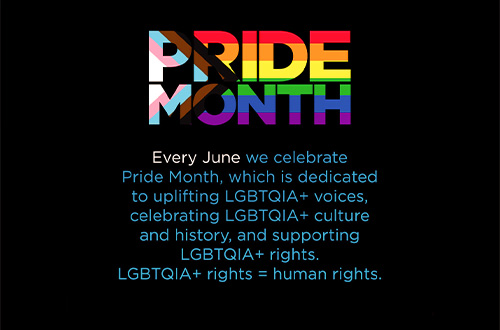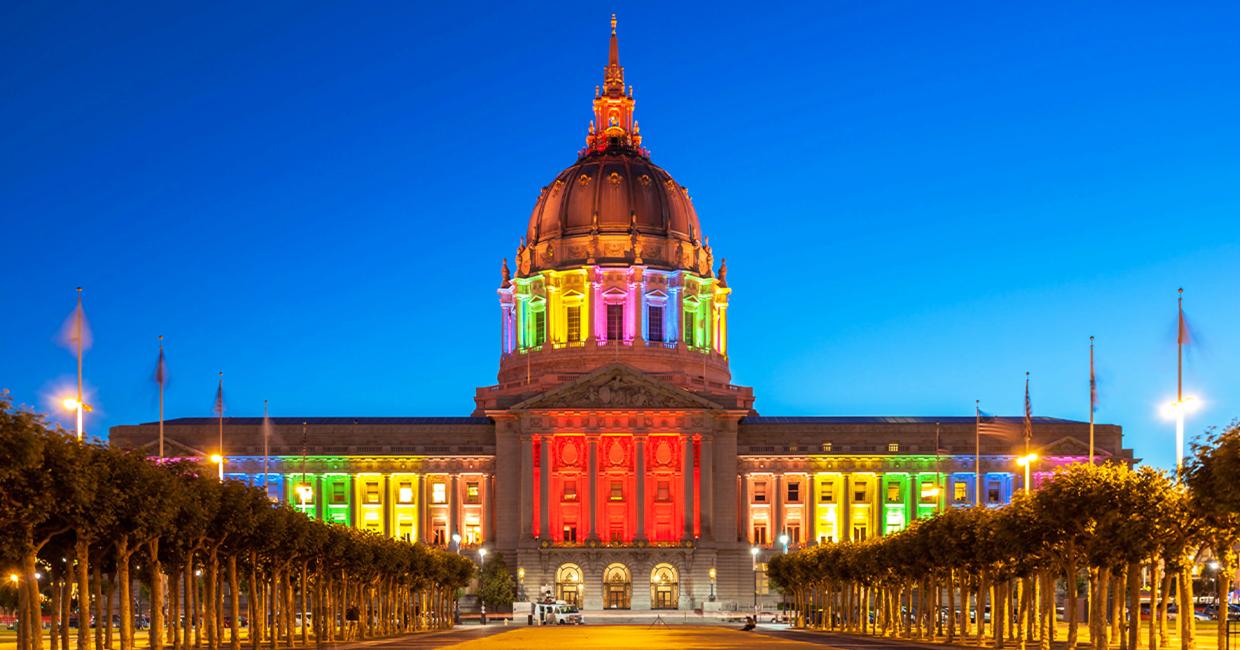With the surge of transphobic and anti-LGBTQIA+ legislation throughout the U.S., it’s especially important to uplift and celebrate the LGBTQIA+ community this Pride Month. It is also a time to reflect on how the work at the San Francisco Public Utilities Commission (SFPUC) impacts people of color, people with low incomes, the LGBTQIA+ community, and the intersection of these identities.
As a power provider, energy burden – the percentage of gross household income spent on energy costs – and environmental justice are some of the main ways the work of the SFPUC impacts the LGBTQIA+ community. The SFPUC defines environmental justice as the fair treatment of people of all races, cultures, and incomes and believes that no group of people should bear a disproportionate share of negative environmental consequences resulting from the operations, programs, and/or policies of the SFPUC.
Unfortunately, data on energy burden and environmental justice in the LGBTQIA+ community is lacking, but here’s what is known.
Energy Burden
Energy burdens are three times higher in households with low incomes compared to households with higher incomes. Black and Hispanic households have energy burdens that are 43% and 20% higher than white households, respectively.
The poverty rate in LGBTQIA+ populations was 17% in 2021 compared to 12% in non-LGBTQIA+ populations. In the most marginalized LGBTQIA+ communities, poverty rates are even higher: 24.7% for LGBTQIA+ people of color and 21% for transgender people. Taken together, these historically marginalized groups are likely burdened by disproportionately high energy costs.

High energy burdens cause economic strain as well as disparate health outcomes. With climate change and rising temperatures, there is a greater demand for cooling. Consequently, marginalized communities will be saddled with greater energy costs from air conditioning or forego additional energy costs at the detriment of their health, safety, and comfort.
Air Pollution
Race is the biggest determinant of environmental injustice. Research suggests that race layered with socioeconomic stressors, like income and LGBTQIA+ identity, compounds environmental injustices like exposure to air pollution.
LGBTQIA+ people are particularly vulnerable to air pollution due to higher rates of housing instability, homelessness, and medical discrimination. One study examines air pollution impacts in the LGBTQIA+ community by looking at neighborhoods with high concentrations of same-sex couples. The study found that these neighborhoods had greater exposure to hazardous air pollutants and a 9.8-13.3% higher risk of respiratory illness.
While the data is limited, negative health outcomes in people of color and people with low incomes are further compounded by LGBTQIA+ identity.
Supporting SFPUC Customers
The SFPUC’s Power Enterprise is committed to lowering energy burdens in historically marginalized communities through proactive outreach and assistance programs for Hetch Hetchy Power and CleanPowerSF customers. Moreover, the mission of the SFPUC is to provide San Francisco with clean energy helping to reduce carbon emissions and their harmful effects, especially in communities of concern.
As the SFPUC continues to advance towards a clean energy future for San Francisco, there is a stark reminder this month of the work that remains to address energy burdens across communities in San Francisco. As San Francisco celebrates Pride Month, the SFPUC encourages everyone to learn more about environmental justice and energy equity and find ways to support the LGBTQIA+ community and the diverse communities in our City.


